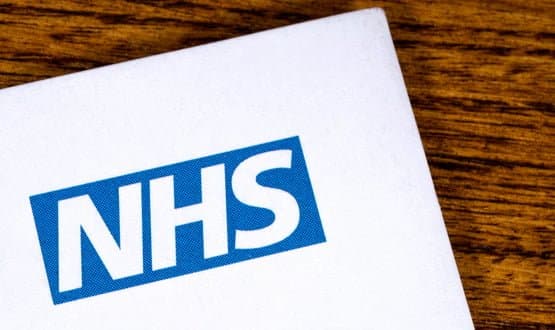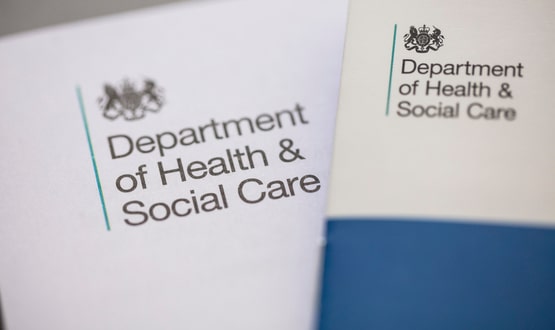Matthew Gould confirmed as new CEO of NHSX by DHSC
- 4 April 2019

Government digital policy chief, Matthew Gould, has been announced as the new CEO of NHSX and will be responsible for setting the national technology agenda for healthcare.
After months of speculation, Gould was unveiled as the CEO of the unit, which has been tasked with overseeing digital transformation in the NHS. It’s mission statement is to make sure patients and staff have the digital technology they need.
The former government director for cyber security will join NHSX in the summer to coincide with the organisation’s July launch. Digital Health News understands the organisation will commence in “shadow form” from 8 April.
From then, NHSX will mandate the use of internationally-recognised tech and data standards across the NHS. These include:
- A consistent language of clinical terms to help staff share information, such as patient records, seamlessly across health and care settings, improving patient safety
- Successful projects and technology developed within the NHS will be required to publish findings to allow evidenced innovations to be adopted elsewhere quickly
- Suppliers will need to demonstrate they can meet strict criteria before the NHS pays for their services. NHS organisations will be expected to demonstrate they are compliant with standards across their estate
Gould will have strategic responsibility for setting the national direction on technology across all the family of health and social care organisations. He will be accountable to the health secretary, Matt Hancock and chief executive of NHS England, Simon Stevens.
From July, NHS Digital will be sponsored by NHSX rather than the Department of Health and Social Care.
Gould said: “Our single goal will be to improve the care that everyone in the country gets by making sure that both staff and patients have the technology they need.
“I will know I have succeeded if in two years we have reduced the crazy amount of time that clinicians spend inputting and accessing patient information; if we have given patients the tools so they can access information and services directly from their phones; and if we have started to build a system in which patient information can be securely accessed from wherever it is needed, ensuring safer and better care as patients move around the system, and saving patients from having to tell every doctor and nurse their story over and over again.”
In a string of announcements about NHSX, the Department of Health and Social Care (DHSC), also said “digital experts” from the organisation will be “embedded in national mental health and cancer teams to help clinicians and policymakers improve patient experience through the power of technology”.
If the model proves to be successful, it could be rolled out more widely across the NHS as part of the Long Term Plan, DHSC added.
In addition, NHSX will recruiting in the summer for a chief technology officer (CTO) who will be responsible for designing and delivering a new Internet-based technical architecture for all of the NHS and social care. The CTO will also oversee NHSX’s engineering and infrastructure work.
Hancock said: “I want to invite the very best talent to join NHSX. If you’re an innovator and you want to serve our society, I want to welcome you to join the growing band of HealthTech pioneers at NHSX who are going to be on a mission to transform harness technology to save lives. We want to invite brilliant people from Government, NHS and industry will work closely with clinicians to cut through bureaucracy – meaning patients get access to the best innovations more quickly.
“NHSX is one of the most exciting things happening in the UK. It’s cutting edge, it’s mission driven, and it’s about harnessing the best. This is just the beginning of the tech revolution, building on our NHS Long Term Plan to create leading health and care service – for us all.”
Digital Health News has previously reported that NHSX, which is seen as a joint initiative between DHSC and NHS England, will include setting the national strategy for cyber policy and supporting the use of new, emergent and effective technologies.
Dr Simon Eccles, CCIO for health and care, said: “The NHS Long Term Plan builds on significant recent progress to a more digital NHS, from providing free WiFi, to helping the most advanced hospitals push the latest advances, to an Apps Library showcasing a range of digital tools that can help the public take charge of their own health.
“To ensure the benefits of new digital technology can reach patients right across the country, experts from the NHS and Government will be working closer together as part of NHSX to help the NHS go further, faster.”





4 Comments
“A consistent language of clinical terms … ” is a start.
But the terms are only the basic “words” of the clinical content: we need their “grammar” to be standard – the clinical models – and their construction into meaningful text to be standard too.
Else whenever moving from one system to another, we’ll still be bound into paying vast sums to the industry to make the terms as useful as if communicating fully in one language.
Terminology is only one component of a digital platform.
Can anyone send me a copy of the advert and JD for the role?
Laudable objectives for NHSX, however it throws an uncomfortable spotlight on NHS Digital – what is this organisation’s role going forward? If the NHSX CTO is taking on the responsibility for a new NHS “Internet Architecture”, engineering and infrastructure – is NHS Digital left to keep the lights on for existing national services such as PDS and SCR? And in a future of regional LHCRs the need for these central services is already being challenged by ideas for federation of LHCR capabilities. Interesting times.
Comments are closed.